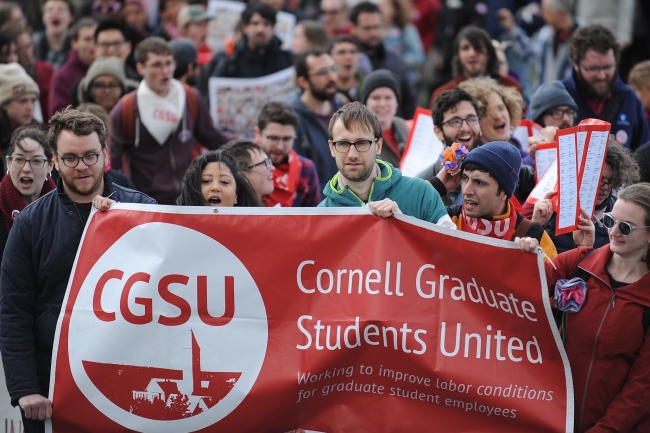For administrators, talking about graduate-student unionization can be fraught. Take Cornell University, where graduate activists and their faculty allies are clashing with the administration over a pair of messages by a dean.
The dispute raises questions about the proper role of administrators, who almost uniformly oppose collective bargaining by their graduate students, in communications about union elections. When, for example, does an honest opinion about a union’s effects cross into improper coercion? Can an announcement about new benefits appear like it's trying to influence an election?
While disagreements have played out on other campuses about the proper role of administrators and faculty members when discussing graduate unionization, the debate at Cornell is especially sensitive because a vote in March was so close: 919 voted against unionization and 856 supported it. Eighty-one ballots have been challenged because of voter-eligibility questions, which could swing the election.
Their concerns center on two messages. On March 26, the day before voting began, Ms. Knuth in an "Ask a Dean" memo to graduate students, suggested that a union could lead to fewer graduate students at Cornell. The next day, the first day of voting, Ms. Knuth informed graduate students that their cost for out-of-network health care would be going down.
The messages, the faculty members and graduate activists say, were two sides of the same coercion coin: the first, a threat, the second, the promise of a new benefit. "Announcing new benefits close to the time of an election to influence employees to vote against union representation interferes with voters’ free choice," the letter states.

